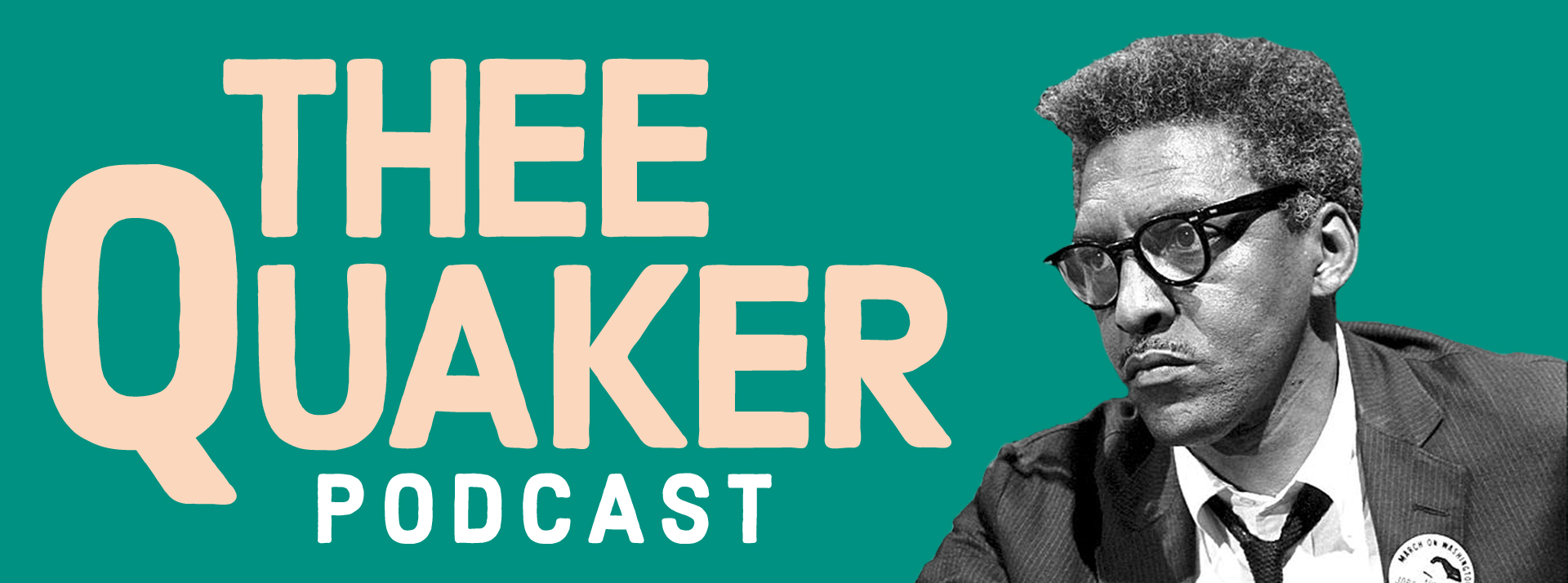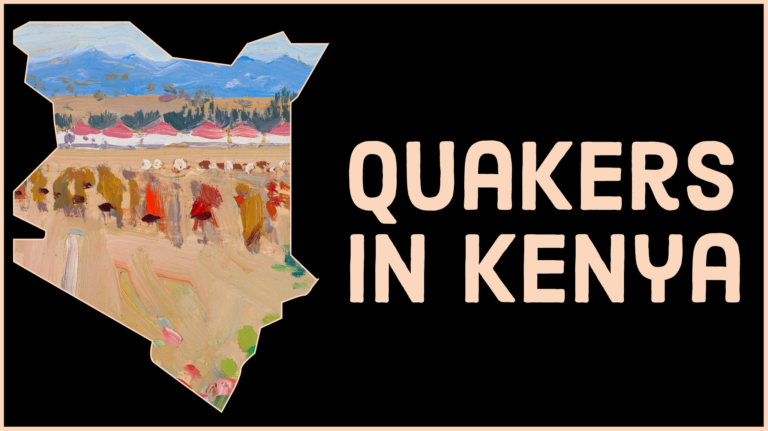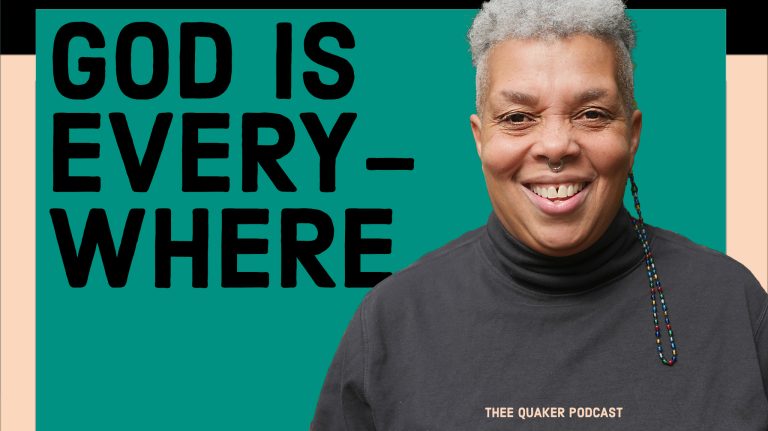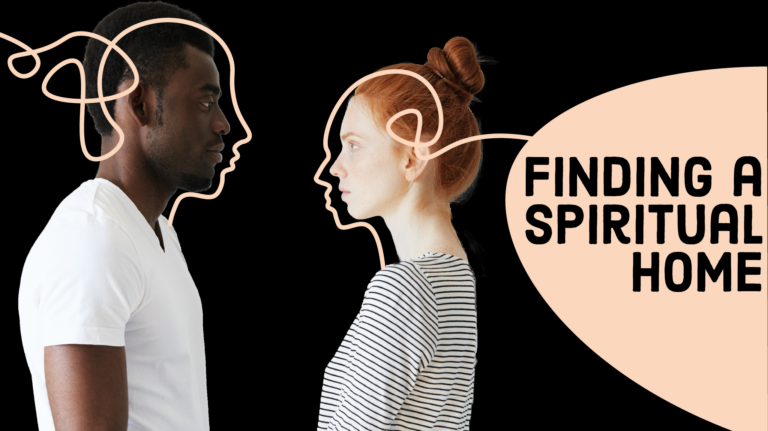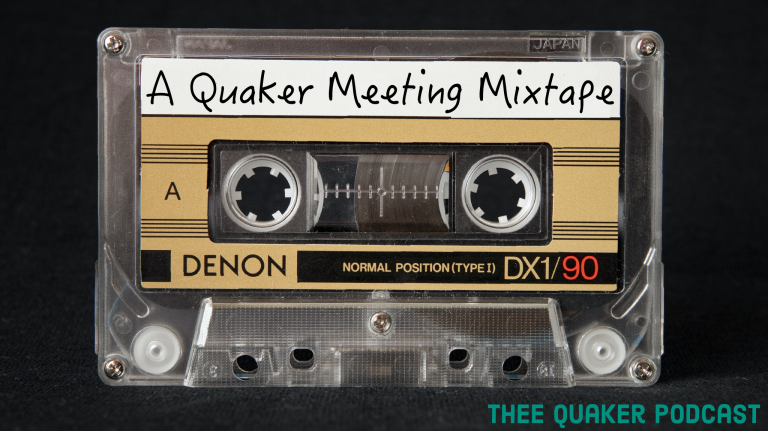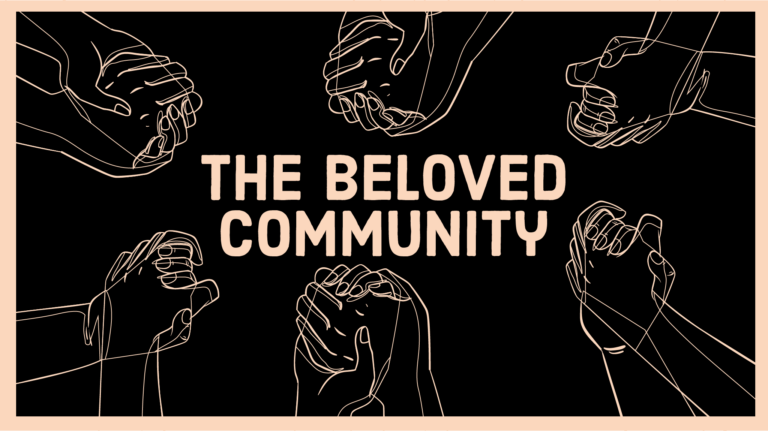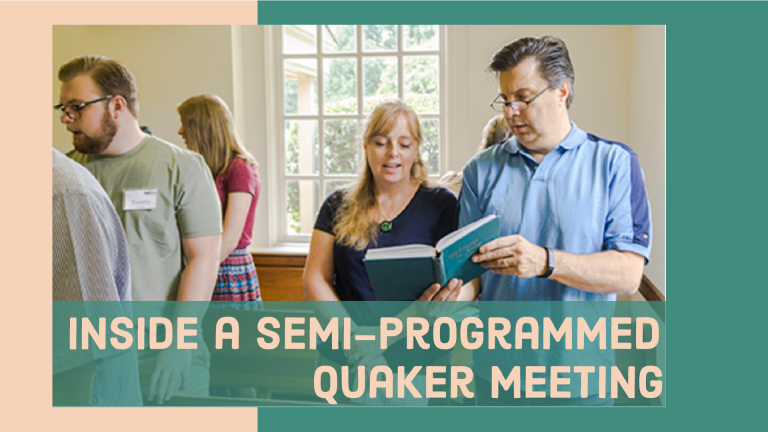Swimming With Spirit: Growing Out Of A Colonial Mindset
On today’s vocal ministry episode, Quaker pastor Mark Pratt-Russum shares a message inspired by a recent trip to Hawaii in which he was confronted with the uncomfortable marriage of Christianity and colonialism. Mark is the pastor of West Hills Friends, a Quaker meeting in Portland, Oregon, and he speaks to the need to attend to Spirit in the natural world.
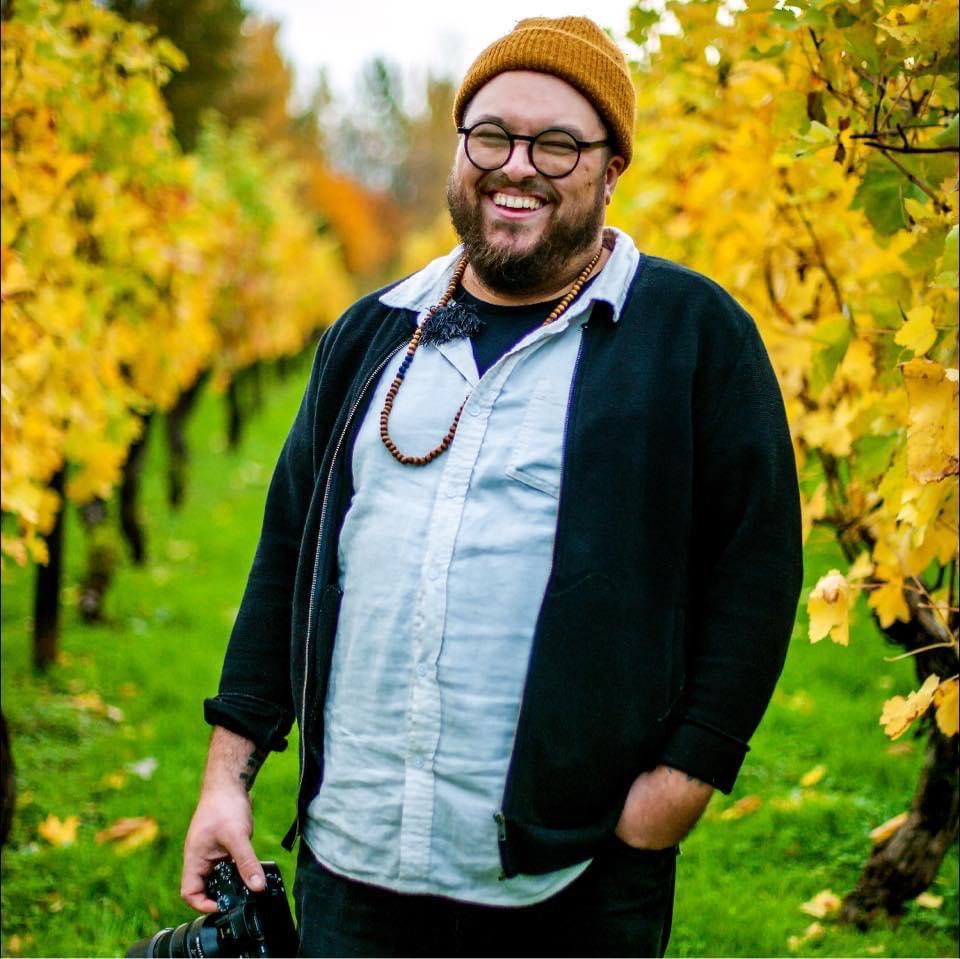
Subscribe so you don’t miss an episode!
Leave a comment below to your thoughts on Mark’s message.
Download the transcript and discussion questions.
Discussion Questions
- For this message, Mark says he was challenged to speak “in a way that allows (his congregation) to grow and to transform…but not feeling guilt and shame.” How does this resonate with you?
- Take some time to consider Mark’s query: “How can we become more attentive to divine leading, trusting that we may find our way out and forward by a reorientation towards Spirit’s presence in the natural structures and systems surrounding us?”
Georgia: Hi everyone. It’s Georgia here. If you’ve been listening the past few weeks, then you’ve heard that we have a goal to reach 100 monthly supporters by the end of this month, that’s June 2024.
It felt like a big ask, but y’all have really responded and now we are so close to our goal. As in if 5 more of you sign up to give $5 a month or more, we will reach this milestone.
Now, I cannot read minds, but I feel pretty sure that there are five of you out there who have been thinking about signing up. So, how about doing it today? Your donations help us make this project sustainable for the long run. It really makes a difference. Plus, we are working on a few perks for our monthly partners, so come, join our team. Just go to QuakerPodcast.com and click “support.” You can also find a link in our show notes. We’re so thankful for all of you! So now here is the show.
Mark Pratt-Russum: And what hit me in that moment with a snorkel still in my mouth was that the Christianity that I was brought up in and much of modern Christianity as we know it may only be saved by a radical reorientation towards a spirituality rooted and informed by the wisdom of the ecosystems we have long sought to conquer, chop, pave, burn and pollute.
Various: Thee Quaker Podcast. Story. Spirit. Sound.
Jon Watts: I’m Jon Watts.
Georgia Sparling: And I’m Georgia Sparling. And it is your episode today, Jon. So what have you got for us?
Jon: So we had a vocal ministry episode on the calendar.
Georgia: Right. So do you want to remind our listeners what you mean by vocal ministry episode?
Jon: Yeah, so so Quakers do this thing when we’re in worship together, where we invite the Spirit to speak through us. That can take many forms and an unprogrammed meeting, it might look like people standing to speak out of the silence. In other meetings, there might be a pastor bringing a message and then they invite a time of reflection afterwards.
Georgia: Kind of like a democratized worship service.
Jon: Yeah, some Quakers like to say that we didn’t abolish the clergy, we abolished the laity. Anyway, as a Quaker podcast, we’re trying out ways to feature this kind of vocal ministry every so often by bringing you inside of a Quaker meeting or church somewhere in the world to hear some vocal ministry.
Georgia: And we’ve already done a variety of these episodes, from unprogrammed Quakers to programmed, and a few weeks ago, we even featured a Kenyan Friends church and a vocal ministry episode.
Jon: We’re taking you around the world. The only group we haven’t had yet is the Conservative Quakers that’s conservative with an uppercase C not a political reference. And we’re working on it, but you know, it’s a process.
Georgia: Yeah. So who do we have this week?
Jon: So I was just in Portland, Oregon working on the pilot for our video project. That’s where we partner with a local monthly meeting to tell their story in a video for their website and our global YouTube audience. I was working with this videographer who was also the pastor of a local meeting. His name is Mark Pratt-Russum.
Georgia: And listeners might remember hearing from him on the George Fox episode, “George Fox and the Birth of Quakerism,” actually. You interviewed him for that, right?
Jon: That’s right. It’s been a little while. That was episode two. So Mark, and I were wrapping up a full weekend of filming. And he was reflecting on what it was like to talk with liberal Quakers. And I pitched him on the idea of sharing a vocal ministry message. Mark had just gotten back from Hawaii, and his trip had brought up a lot for him about history, land, colonialism, and the church. He said he was planning a message that very Sunday based on that exploration, and it seemed relevant, especially after your work of exploring Quakerism in Kenya, which, of course is the direct result of Quaker missionaries.
Georgia: I’m learning that missionary work is a very charged subject among the different branches of Quakers, so it’ll be interesting to get Mark’s perspective, especially after hearing from Dr. Muhanji in our Kenya episode.
Jon: Right, totally. Yeah, so, anyway, let’s get into it. If you’re new to these vocal ministry episodes, we start with a brief interview to set the scene. Then we share a recording of the message and then have a little debrief. Okay, here’s my conversation with Mark.
Mark: My name is Mark Pratt-Russum. I grew up in Lancaster County, Pennsylvania, but currently live in Portland, Oregon. I am the released minister at West Hills Friends. When Friends decided that there were needs, ministry needs, within their communities that exceeded the availability of volunteers. They discerned that they would like to discern someone in the community who had gifts in ministry that could meet the needs of the community. But in order for that person to attend to those needs, they were going to need to stop working their other job. And so they needed to release them from that obligation to make money, say, as a farmer, and instead attend to the needs of the community, as far as how I got here, I grew up in the evangelical church, and during that time, discovered ministry, to be my next path, and went to Eastern University just outside of Philadelphia. It was during those four years that I deconstructed my evangelical upbringing and discovered mysticism, Christian mysticism, and began finding ways to incorporate that newfound home into some kind of vocation. And thankfully, I discovered the Quakers in those years and found them to be probably the best match for my particular brand of Christianity.
Jon: Yeah, thanks for sharing that. Let’s talk about West Hills. Set the scene for us. What’s a typical Sunday morning like at West Hills Meeting?
Mark. We are what some call a semi-programmed Quaker meeting. So there will be a welcome from the front, followed by some singing. And, and then yeah, I rise, or someone in the community rises to offer a prepared message. We like to invite folks to end their message with queries that are invitations to those gathered to carry into open worship together. So we usually sit in between 20 and 30 minutes of waiting, worship and silence. When I sense the Spirit is concluding our time together, I’ll stand and ask everybody in the community if our hearts are clear. And that’s kind of the opportunity of someone who still feels they have ministry can raise their hand. And I’ll sit back down and we’ll go back into waiting worship. And then we do joys and concerns. And we have some announcements, and then our elder will close it in prayer at the end.
Jon: So yeah, I want to zoom in on this prepared message. What does that process look like for you?
Mark: I have found that there are times where I try, you know, to get ahead of myself and maybe write a message that will be delivered two or three weeks out. And what happens is, I wake up on Sunday morning and check my phone and there has been a tragedy in the world. And all of a sudden the words that I had prepared feel completely irrelevant to what is actually happening. And I think that happened enough times for me to realize that it’s probably just better to be a human, to observe what are we feeling? What is the temperature of my community, of our city here in Portland, maybe our state? Maybe there’s something going on. And so, as I’m paying attention, I just invite the Spirit into that. So what I’m just doing is I’m just thinking. I start writing. Sometimes it comes on a Tuesday. And sometimes it really flows in on Saturday afternoon, where I feel the pressure of tomorrow is the time that you’re supposed to speak. For me it just seems to be how it works.
Jon: What’s your relationship with public speaking? Is that a spiritual practice for you?
Mark: I love the people in my community. I know what they’re going through. I have the privilege of sitting down with them and hearing about their lives’ struggles and the traumas they’ve experienced. My responsibility is to stand up there and to hold all of that. And to realize that I can do harm with what I say. And so I feel the weight of that. And it’s not a heavy weight, it’s a helpful weight. It’s a way for me to check my ego and to check what it is I’m trying to say to these people. It feels like a healthy check to me, that I discern well what was what needed to be said.
Jon: There’s a deeper check, right, which is, was I faithful to what I was given? And if the answer to that is yes, and somebody didn’t like it, maybe there’s a welcome tension there.
Mark: Yeah. I mean this message that I’m going to give on Sunday is a perfect example of that. I recently traveled to Hawaii for the first time. And I just felt this tension of the past where Christian mission, coupled with the hopes of pillaging natural resources from empires. They got together and they were like, well, we can do this together, I felt the tension of that as a mainland white person. And so this message that I’m going to give on Sunday was first seeded in me as I was snorkeling, and I just had this revelation in that moment, that our inability to see the way in which we are contributing to our planet not being habitable anymore for human beings and for animals and plants is for me, a spiritual problem.
It is the fruit of us, coming alongside an empirical, empire-oriented, intellectually superior faith that took us away from our understanding of the systems which inform our understanding of God. I have to speak to that in a way where people can welcome that into their life and in a way that allows them to grow and to transform maybe, but not feeling guilt and shame. Because I don’t want to do that, either. So that’s the task I feel like I’m up against for this Sunday.
Jon: Well, Mark, I look forward to hearing it. And I wish you faithfulness. And thanks so much for giving us this background and for being willing to record it.
Georgia: Okay, everybody, I have an exciting announcement from Thee Quaker Podcast headquarters. We won an award! So you are listening right now to the recipients of the Associated Church Press’s Award of Excellence for a Podcast or Audio Series. That’s right, we won for our very first season! So I hope you won’t mind if we pat ourselves on the back for just a second. Because this award means so much to us. To be recognized for our first season is huge! The award is granted to podcasts with deft storytelling and high production values. And that’s what we’ve set out to do from the very beginning.
This award also comes with a big thanks to you, our listeners, who have cheered us on from episode one. It’s really great to receive this accolade, but truly we make these shows for you. And it’s because of your generosity that we’re able to keep making new episodes, and your monthly support gives us the resources to make this show better and better.
Now, you know we have a big push to get 100 monthly supporters by the end of June. If you haven’t done it yet, please consider this your nudge. Help us get to that goal today by going to quakerpodcast.com and clicking on “Support.” Thanks so much.
Mark: First time I became aware of the concept of God was after I unknowingly inquired about his son. Well, the likeness of his son as it was displayed, suspended on a wooden cross attached to the soaring ceiling of the Lutheran Church in Coatesville, Pennsylvania. His body detailed enough to be displayed in a wax museum was thin, his ribcage protruding under bruised and bloodied flesh I could see blood running down his forehead onto his cheeks. Jesus was to scale. And so the cross, too, was appropriately portioned. The scene was theatrical in its grandeur. As a nine-year-old boy, I couldn’t look away. It was my first time at a church, Easter Sunday. The tortured Jesus dangled over an altar spilling over with potted Easter lilies.
When we got in the car, I unloaded my questions on my grandmother. Who was that man? Why did it look like he had been in a car accident? Why is he there? Why did that place want it there? My grandmother, having only wanted to check off the “I go to church on Easter” box, was not prepared for her grandson’s avalanche of theological questions. I don’t recall how she handled them all. But I gathered that the guy was Jesus. His dad was someone named God. But that God lived in the clouds in a place called Heaven. And if I needed to picture him, since I’d never be able to see him, I could picture someone who looked like my uncle or Santa.
And speaking of Santa, God is kinda like Santa in that he watches us to make sure we are being good. And and if we are good, our whole lives, we will go to Heaven in the clouds to meet God. And that is where all of our friends and family and dogs who have died are right now. And after we die, we all will get to be together. My grandmother’s Christianity elevator pitch worked. Within weeks I was enrolled in Lutheran catechism, was baptized, confirmed, and took my first communion right underneath tortured Jesus. None of it made any real sense to me at 10. But I’d always been a huge fan of the Santa guy who lives far away and who I only got to see in the mall once a year. So This Jesus/God thing didn’t seem to be too much different.
A few years later, my family began attending an evangelical church which allowed me to transfer my knowledge of Christianity and gave me access to a youth group and a whole bunch of new adults who reminded me how important it was to have faith, to remember that just because we can’t see it doesn’t mean it’s not real. I learned that my doubts about God were put there to tempt me by another unseen character named Satan.
The same adults made sure I knew my job was to tell people what I knew about God, which meant that I’d also need to tell some people what they believed was wrong. We went on two trips to Mexico and the Dominican Republic when I was a teenager, where with the help of an interpreter, I spoke into a PA system (foreshadowing), set up in a public park to tell all those poor people who didn’t believe in God, how important it was for them to believe.
I was told I was joining a long line of Christian brothers and sisters who have traveled the world to help people turn away from primitive and misguided beliefs. I’ve spent the better part of the last two decades revisiting my past and pulling apart all of this, many of you sitting here have journeyed alongside me in this detangling. Along the way, I did what I knew to do best: I engaged in my transformation into a more progressive expression of Christianity by reading and engaging with thinkers who had done similar work of deconstruction, and who have reclaimed Christianity and continue to identify and live as one. I read all of the mystics and found in their thinking and experience my own way forward. It led me here to West Hills. It wasn’t until two weeks ago as I sat on an airplane descending into the Hawaiian Islands that the reality that the legacy of an intellectually-driven, Western-oriented Christianity continues to haunt almost every expression of modern dominant Christian culture. The hours spent on the airplane leading up to this moment were spent looking out the window and trying to process why I felt so uncomfortable about my presence in Hawaii. I felt reminded of two previous airplane trips to cultures much different than mine.
For those short term missions trips to Monterrey, Mexico and Santo Domingo in the Dominican Republic, I remember feeling the mission on the airplane during those trips. We were going to save people from their backwards and depraved way of life. I felt a different way on my way to Hawaii. I felt the reality that white men like me carried the spirit of conquest to these islands, in the name of the church, not on airplanes, but on ships loaded with men on missions, both from the empire for natural resources, and the church for souls. A tag team solidified and strengthened by centuries of collaboration. I felt as if I needed to prepare my heart for my arrival, to be sure I brought a different spirit. To know how to walk on that ground with respect, with sorrow, with a need to repair, to honor, to not take anything or leave myself there in an unwanted way. And I want it to be receptive to feel, to listen, to take it in.
I landed in Kona, slept, woke up, and within an hour was bobbing in the crystal blue water on a chartered boat making its way to Kealakekua Bay, where Captain Cook and his men, on missions of conquest, attempted to kidnap the ruling chief.
I wasn’t there for this history. I was there to snorkel in the very waters where Captain Cook, alongside dozens, including maybe many Native Hawaiians, died. One of the crew members was speaking to us through a microphone. Still wrestling internally about my presence there on the island, I noticed the way the crew member automatically used phrases like, “the people of these islands believed” as in “used to believe,” or as in, “believed in such a silly, primitive, easily-disproven thing by science.” That was the moment for all of us modern, progressed, civilized folks who know better.
Moments later we anchored in the bay and for the first time in my life, I put a snorkel in my mouth and immersed myself in an alien underwater world. I was beholding a complex, delicate, unbelievably beautiful scene, coral and remarkably earthen, yet bright colors. Fish swimming within inches of my face, floating there in the very water that still holds painful memories of conquest. I had to confront once again, how places like this, with ecosystems that have created such tremendous beauty and harmony, and whose indigenous inhabitants formed spiritual knowing, connection, and community from the wisdom and spirit of those systems. These places were perceived as backwards, in need of enlightenment, of fixing, of saving.
And what hit me in that moment with a snorkel still in my mouth was what the Christianity that I was brought up in, and much of modern Christianity as we know it, may only be saved by a radical reorientation towards a spirituality rooted and informed by the wisdom of the ecosystems we have long sought to conquer, chop, pave, burn and pollute.
The expression that I often heard growing up in the church was that God was everywhere, like the air we breathe. For most of my life, I struggled to understand what that meant. God was already invisible. So I just assumed that people meant that God was like floating around like a ghost. Or it was a poetic metaphor that I had yet to grasp. And yet, “God is everywhere” appears to be understood in a more down-to-earth way by many cultures and religious practices throughout the world.
“God is everywhere” to an expression of faith mostly experienced through talking, intellectualizing, thinking, becomes just another internal intellectual exercise. To people who have learned how to live within and alongside the wisdom of natural systems, and who saw in plants, animals and in the rhythms of the seasons and tides, “God is everywhere” was not just an intellectual reality. It was a spiritual reality that made abuse of natural resources an act of desecration, something we have long failed to comprehend. If we need a symbol of our inability to understand this “God is everywhere” as an embodied in the Earth reality, we only need to look at how we desecrated the sacred lands of the Black Hills for the Lakota Sioux, and then renamed it Mount Rushmore. How could a mountain be sacred, especially one that had no coal in it?
It is almost as if we are the ones in need of evangelism, of being called back and forward into a more profound understanding of “God is everywhere.” Thankfully, Quakers like John Woolman have gone before us, and who can attest to the same spirit that speaks through our collective listening, even across language and spiritual differences. One biographer described Jon Woolman as being equipped with moral antenna which caused him to feel what others would not feel for another century. Woolman visited Native American tribes, he said, not as a missionary but so that “happily, I might receive instruction from them, or they might in any degree be helped forward by my following the leadings of truth among them.” A story Woolman recorded in his journal has become a favorite among Friends. Woolman attended a capital M meeting, suggesting a gathering for worship, led by natives in the Delaware Valley. Woolman said the meeting was a place where the “pure gospel love was felt,” despite the struggle of the interpreters to translate the Delaware tongues into English for him.
Eventually, Woolman followed a leading of spirit to release the interpreters of their duties, so that the meeting could conclude with a degree of divine love. Afterwards, one of the interpreters relayed a message from one of the Native leaders to a Woolman who said, “I love to feel where words come from.” We Quakers know when the Spirit, who is truly everywhere, moves among us. We know that this often happens in mysterious and unpredictable ways. How can we Quakers who practice this way of knowing, become more attentive to divine wisdom and guidance, trusting that we may find our way out and forward by a reorientation towards Spirit’s presence in the natural structures and systems surrounding us?
That will be my offered query for waiting worship. I’ll read it again, though. How can we become more attentive to divine leading, trusting that we may find our way out and forward by a reorientation towards Spirit’s presence in the natural structures and systems surrounding us?
Jon: How did it go giving this message? Particularly I like to ask folks how do you remember it feeling in your body to give this message?
Mark Pratt-Russum: This Sunday in particular, because I talk about things like conquest and colonialism, I’m aware that in a primarily white community, that likely what’s happening, our defense strategies are firing in people’s brains. Did I incite too much of that reaction for us to be able to listen to Spirit? If I’m doing this well, I will have listened to a voice that’s both inside me and outside of me. And so once it’s done, I often feel like I’ve said what I’ve said, and I’m releasing it. I know that some people may need weeks to let a certain message interact with their history and their experience. And I may never hear what that process was like for them.
So yeah, I feel that I said some things that made me nervous, and I and I went ahead with that, and I’m trusting that that took some faith to do.
Jon Watts
Thank you, Mark.
Mark Pratt-Russum
Yeah.
Georgia: Thank you for listening and thank you to Mark Pratt-Russum for sharing this message with us. Learn more about Mark, find discussion questions for this episode and download the transcript at QuakerPodcast.com.
This episode was co-hosted and produced by Jon Watts and me, Georgia Sparling. Studio D mixed the episode and your moment of Quaker Zen was read by Grace Gonglewski.
Thee Quaker Podcast is a part of Thee Quaker Project, a Quaker media organization whose focus is on lifting up voices of spiritual courage and giving Quakers a platform in 21st Century Media. If you want to partner with us, please consider becoming a monthly supporter. Every contribution expands our capacity to tell Quaker stories in a fresh way, and it makes this project more sustainable. Visit QuakerPodcast.com for more information, and now for Your Moment of Quakers Zen.
Your moment of Quaker Zen was read by Grace Gonglewski.
Grace Gonglewski: Rachel Davis DuBois, 1978: By using the power of mature, redemptive love we can show each individual that we need his or her uniqueness to make us whole. We will then see that we have something to give others and that others have something to give us.
Georgia: Sign up for daily or weekly Quaker wisdom to accompany you on your spiritual path, just go to DailyQuaker.com. That’s DailyQuaker.com. We’re taking a few weeks off to go out into the field to gather new stories. We’ll be back at the beginning of July with all new episodes.
Produced and co-hosted by Jon Watts and Georgia Sparling.
Original music and sound design by Jon Watts (Listen to more of Jon’s music here.)
Mixed and mastered by Studio D.
Supported by listeners like you (thank you!!)
Referenced in this episode:
- Listen to more sermons from Mark and others on West Hills Friends website.
